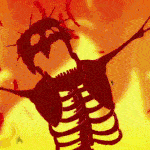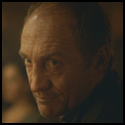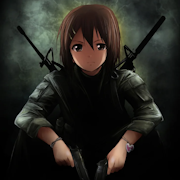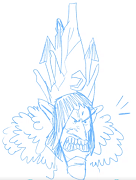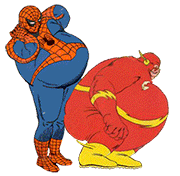|
Fair enough about Micah maybe not trying to betray the gang so openly at that point. But here's a thought somebody suggested - that Milton told Micah where Cornwall would be and that's why Dutch was able to kill him. Thoughts on this? We know Micah worked for Milton at this point so it's at least possible. I don't think Milton likes being beholden to this grubby little capitalist, even if he did fund them. They have an argument right before Cornwall dies. Also the topic of Milton came up on the rdr subreddit. You know the usual "at least he's defending law and order" poo poo. I will say that, while the game maybe doesn't approve of the gangster lifestyle, it never says the gangsters themselves are bad people. Somebody like Lenny is absolutely a better human being than Milton. I think some people are just fooled by his first couple of appearances where he offers "peace." Now, the sincerity of these offers might be be undermined due to his taunting Arthur about how he tortured Arthur's friend to death but.... I think those scenes exist less to make us think Milton is a good guy and more to show us the loyalty everyone has to Dutch. Bronte's death is the same thing. People keep trying to buy off the gang one way or another and it doesn't ever work. Except for the one time it does but you get me. NikkolasKing fucked around with this message at 02:59 on Aug 10, 2022 |
|
|
|

|
| # ? Apr 29, 2024 01:35 |
|
NikkolasKing posted:Fair enough about Micah maybe not trying to betray the gang so openly at that point. The Pinkertons were and are absolutely an evil organization that murdered striking laborers. Milton is not named after a reference to Paradise Lost for nothing. He does not offer peace to the gang, he only offers them stays of execution in exchange for Dutch, and they all understand he cannot be trusted, as Ross eventually shows with John. That's where I think the game's message on capitalism and such is not just that it is inevitable. It is to Dutch and his gang, but it is made so by tyrants like Cornwall and the scum that do his bidding like the Pinkertons. it did not HAVE to be this way, and Dutch is not wrong to see the flaws in society and wish for a better way. Other places in the world fought and even stopped capitalism's progress, at least for a time, and there is still hope, however small, today. The issue is Dutch himself never truly dedicates himself to his ideals. Lenny calls him out on his simple understanding of Evelyn Miller's writing, and Uncle calls him out on not truly living to his ideals in camp. While it certainly was great that time they robbed from the rich and gave to the poor, and they do good things by taking in society's castoffs, he never has a plan, despite his bluster, beyond robbing more. He and Hosea have obviously talked about buying land forever, but were they truly going to become farmers or trappers? The gang has many useful people, but most of their talents lie at extracting wealth from others by trickery or force, not by producing anything. The closest is arthur, john, and charle's skills at hunting and fishing. Bringing Micah into the gang, a man whose only true value is in a gunfight, shows Dutch only sees problems as nails, and thus finds hammers.
|
|
|
|
I actually never saw any of these Dutch/Lenny talks and I'm kinda sad I didn't. https://www.youtube.com/watch?v=j-DzZBdMRYA I'm sure there are a billion camp dialogues I missed but relevantly here, I think the difference between Dutch and Lenny can be seen in modern activists. The kind who think "theory" is a waste of time vs. "praxis." I don't blame Lenny and I don't blame Dutch, they might both be outlaws but they come from vastly different circumstances. Dutch is essentially an outlaw by choice and conviction, Lenny had no real choice. But it's clear from how the convo ends, as well as Lenny cheering on Dutch after he delivered a speech in the "Saved Jack party" that he does genuinely respect Dutch as a great leader and figure. He just does it based on Dutch's actions, not his philosophy. (I had no idea about this but apparently you an even call out Miller for being a hypocrite and he goes crazy and starves to death in some cabin in the middle of nowhere) But yeah, I think you're right. Dutch in RDR1 says fighting is his nature. Hosea says Dutch has taken on too many "murderers and degenerates" in the gang with only somebody like Lenny being a real hopeful, somebody who was a good person and could do good things. I don't see Bill being able to do much else but be a gun/muscle. Maybe after a point you just get so used to fighting that you almost forget the point of fighting is to stop fighting. I mentioned it way earlier but as tragic as it is in a game about redemption, I think the game also firmly believes that some people simply can't change. That can apply to absolute scum like Colm or Micah but also to more sympathetic figures like a lot of the gang. NikkolasKing fucked around with this message at 18:08 on Aug 10, 2022 |
|
|
|
Wait, I thought Lenny ran away from home instead of becoming a fancy pants lawyer or something?
|
|
|
|
Radical 90s Wizard posted:Wait, I thought Lenny ran away from home instead of becoming a fancy pants lawyer or something? He is on the run for avenging his murdered father. I had forgotten how long but seems since he was 15 (he's 19 in the game) https://www.youtube.com/watch?v=GuaPzO5Wk4E Early on Arthur can have an incidental camp talk with him that is just like "I'm sorry about dragging you into this...." and Lenny is just like "Hey, I've been running long before I joined you all." It's why I really don't have any problems with the gang overall. The "justice system" would have killed Lenny long ago, anyway. At least ths way he had some happy and good times, if not as much as he should have had. Mary-Beth has a little cutscene too at the start of a mission where you talk to her and she says the world is a scary place for a young lady all alone and she's grateful to be in the gang, safe and with a family.
|
|
|
|
There’s so many little camp events you can miss. I think Uncle telling off Dutch and Dutch actually leaving without a response is one of the harder ones to trigger.
|
|
|
|
So this is a little something I've been trying to whip up the last week or so. So, preface: I am no one. I didn't even go to college. I only ever beat the game once a week ago. I am just offering my interpretation of the game and its characters. But part of what drew me to the game in the first place was what I read of the character of Dutch van der Linde. This game ultimately might be the story of one man's (Arthur's) journey to redemption but as compelling as that is, it wasn't what drew me to play it for myself. I was far more intrigued by the overarching story of the gang as a whole - the story of these holdouts fighting the encroachment of civilization and capitalism. I had sympathies with al this long before I heard of this game, or even before it came out. I might not be a philosopher or even a philosophy student, but I have done my best to read and learn since about 2016 or so. I figured I could share at least some of that with other fans and help flesh out the game. A great piece of art has to say something in my view so what is Red Dead Redemption 2 saying? Firstly.... Arthur: We're thieves, in a world that don't want us no more. Dutch: We are dreamers, in an ever-duller world of facts, I'll give you that. I cannot find the exact quote where Dutch calls himself a Romantic but it's important to understand what this term means. Or can mean since such things can be vague but I feel this particular definition fits Dutch and Arthur perfectly: quote:Having posited a rejection of capitalist modernity as the foundation and first phase of Romanticism, we need to specify our concept further, since Romanticism represents just one modality, a particular tonality in which critiques of the modern world may be couched. The Romantic critique is bound up with an experience of loss. The Romantic vision is characterized by the painful and melancholic conviction that in modern reality something precious has been lost, at the level of both individuals and humanity at large; certain essential human values have been alienated. This alienation, keenly sensed, is often experienced as exile: in defining the Romantic sensibility, Friedrich Schlegel speaks of the soul “under the willows of exile” (unter den Trauerweiden der Verbannung);44 the soul, the seat of humanness, now lives far removed from its true hearth or homeland (Heimat); thus according to Arnold Hauser “the feeling of homelessness (Heimatslosigkeit) and loneliness became the fundamental experience” of the Romantics at the beginning of the nineteenth century.45 And Walter Benjamin, himself deeply imbued with this worldview, sees in the German Romantics’ appeal to dream life an indication of the obstacles raised by real life on the “path of the soul’s homeward journey to the motherland” (der Heimweg der Seele ins Mutterland).46 I think this fits Dutch's overall philosophy to the letter. In fact, it might be an underlying philosophy of the game, too. The feeling of "loss," of being obsolete and unwanted, of "none of this really matters" is present from the start, even in the more joyful parts of the game. I remember Arthur having a talk with Mary-Beth all the way in Chapter 2 about how none of this matters because the world doesn't want people like them anymore. They fight and they fight and they fight, and none of it did any good, as Dutch says himself in RDR1. Arthur may have realized it sooner, or he may have simply accepted it sooner, owing more to his very different temperament from Dutch. But I don't think enough people really stress how very similar Dutch and Arthur are in their basic view of the world - unsurprising, since Arthur almost assuredly got almost all of his ideas from Dutch. The main difference is how they act on this worldview. That is how I understood the whole relationship Arthur had with both Hamish and especially Charlotte To continue quoting from the book: quote:A second tendency seeks to rediscover paradise in present reality. [...] But one may also choose to flee bourgeois society, leaving cities behind for the country, trading modern countries for exotic ones, abandoning the centers of capitalist development for some “elsewhere” that keeps a more primitive past alive in the present. The approach of exoticism is a search for a past in the present by a mere displacement in space. Nodier brings the fundamental principle of exoticism to light when he explains that his tales Smarra and Trilby are set in a wild Scottish landscape because it is only by leaving Europe behind that one can find remnants of humanity’s springtime, an idyllic period in which the sources of the imagination and sensitivity had not yet dried up.53 This is Charlotte to the letter. In order to discover a more true, authentic, and noble life, she and her husband fled the city and the modern world. Hamish doesn't say he specifically did this but, as Arthur points out, it isn't like he gets much company where he lives. He lives off the land just like Charlotte does. To me, this feels like Arthur's ultimate "tendency" as the book calls it. There is no pushing back the modern world, the best you can do is retreat from it and save your soul by living in harmony with the natural world. Arthur bonds with Hamish over this simple way of life and he teaches Charlotte how to survive this way of lie. These are two people living his dream, in essence. Dutch, by contrast... quote:A third tendency holds the preceding solutions to be illusory, or in any event merely partial; it embarks on the path of authentic future realization. [...] From the standpoint that is oriented toward future accomplishments, that of Percy Bysshe Shelley, Pierre-Joseph Proudhon, William Morris, or Walter Benjamin, for example, the recollection of the past serves as a weapon in the struggle for the future. A well-known poem by Blake gives remarkable expression to this view. In a short text that is part of the preface to Milton, the poet wonders whether the divine presence manifested itself in England “in ancient time,” before its hills were covered by “these dark Satanic mills.” In conclusion, he commits himself to a “spiritual struggle” that will end only when “we have built Jerusalem/in Englands green & pleasant land.”55 In this form of Romanticism, the quest aims at the creation of a new Jerusalem. And to quote a description of Jean-Jacques Rousseau from a different book.... quote:To describe that influence in a somewhat different way, Rousseau may be said to have inaugurated the “radical tradition” of philosophical discontent with modernity which, since his time, has formed a permanent and integral part of modernity itself—culminating today in the declaration of a new, “post-modern” era. Standing at the threshold of the “modern age” inaugurated by the American, French, and Industrial revolutions, the threshold of that long journey toward technological, welfare-capitalist/socialist, liberal, mass, democratic society that today still goes by the name of “modernization”—Rousseau was the first to cry, “stop.” And in presenting his classic diagnosis of the ills of modern society—the loss of social and psychic unity—he defined the problem which succeeding generations of critical thinkers would try to solve. The Natural Goodness of Man: On the System of Rousseau's Thought Dutch says at one point that, for as bad as the New World is, the Old World was even worse. While some things may be open to interpretation about his character, his hatred for the Old World - which arguably manifests in his hatred of the Old South given its close likeness to America's European ancestry - seems beyond doubt to me. He is not content with simply retreating from the modern world, nor is he happy to try and rebuild some ancient society. He wants something radically different from both the past and present. He wants to take those ideals of liberation and realize them, turn them from just a fiction on a piece of paper to a real utopia. Fight back against modernity tooth and nail, don't run from it is how I view him vs. Arthur. Could be the difference between an idealist (Dutch) and a realist (Arthur). If there is any past he might valorize or deem noble, it is that of non-European peoples, like Native Americans. To quote yet another book on Rousseau: quote:The origins of what we call the romantic “enchanted garden” can be found among the early romantics, that is to say the writers and philosophers usually identified as romantic. Although for us the romantic worldview is not limited to the so-called Romantic period but is alive in modern culture up to the present, the early romantics were undoubtedly the ones who laid the first stepping-stones of the unfinished romantic narrative. Romanticism of course does not have a single birth date. But if we wanted to pick one moment as a symbolic starting point it might be 1755, the year in which Jean-Jacques Rousseau published his Discourse on the Origin and Basis of Inequality among Men. This astonishing document constitutes perhaps the first romantic manifesto, with its ferocious critique of modern civilization and celebration of the “noble savage.” The association between these two topoi is to be found among many later romantic writers and artists, from the eighteenth century up to our time, as will be evident throughout this book. Remember how Dutch shoots down Bill's racism on the way to kill Bronte. Note how he follows this up by talking about how he had tried to "teach" all of them something. What had he tried to teach? That America far away from European tyranny was "God's last creation." I suspect it's as close as anything to Dutch's ideal. Now, a word that comes up a lot more than Romantic is "Civilization." Arthur says it right at the start and it's repeated all throughout the game. Well, what is civilization? It's another tricky word to define. I enjoy this distinction and definition: quote:Our word “culture” and the German term “Kultur” are both derived from the Latin colere, “to cultivate.” In the early modern period, it was used – rather rarely – as a metaphor to describe the social and political “cultivation” of civilization, the process of civilizing a person out of a barbaric state. In the late eighteenth century, however, the notion of culture underwent a significant change, transformed in the thought of J. G. Herder, Immanuel Kant, and J. G. Fichte.6 After this transformation, culture became a quite frequent – even everyday term – in the West.7 Civilization is, in brief, the most superficial things humans have ever created. In the name of so-called progress or morality, Enlightened Europeans and Americans destroyed "primitive" peoples and ways of life. Now people get to live in complacency and arrogance about how they're o much better than everyone who came before when in reality they're infinitely worse off in all the ways that truly matter. George Bernard Shaw framed it as: quote:If you had said to him, 'We may be in hell ; but we feel extremely comfortable ', Ruskin, being a genuinely religious man, would have replied, That simply shows that you are dammed to the uttermost depths of damnation, because not only are you in hell, but you like being in hell'. In conclusion, let me just reiterate my own lack of formal or deep education on this matter. Even still, I might know way more about this area of philosophical and cultural history than the writers of this video game. I might have overthought all of this terribly, My only defense is at least I didn't do a 2 hour YouTube video essay. I tried to get across my points and interpretation and hopefully maybe inspire some of the people here to read the works I quoted. If I did that, I think this was a success.
|
|
|
|
NikkolasKing posted:I might have overthought all of this terribly Nah, this was a really interesting read, and while the game paints things in pretty broad strokes at times (though with less of the unsubtle Rockstar touch than usual) I think you've hit the nail on the head in regards to Dutch's philosophy in particular. It could be further reduced to a simplistic and ill-defined (even to himself) concept of "freedom", but even if he lacks the formal education it's clear that he's quite taken by the ideas in some of the books he has read and is excited by the notion not just of trying to realize these ideas in the real world, but that he's thrilled to discover that there are others out there who feel largely the same as he does. He is NOT alone in thinking things are wrong, and that's reassuring. None of this discounts the fact that he is a short-sighted, selfish man who ultimately ends up betraying his own oft-voiced principles in pursuit of a goal he doesn't really even seem to know why he's pursuing anymore, but there's a reason beyond just a silver-tongue and a lot of charisma that he had such a devoted group of followers: he believed in something, he offered the idea that a better life could be had and should be pursued. That he ended up in some ways no different to the Chelonians is deeply depressing, but he built enough trust and loyalty in his followers that it took enormous problems for a smart and capable guy like Arthur to finally see past the bluster.
|
|
|
|
Jerusalem posted:Nah, this was a really interesting read, and while the game paints things in pretty broad strokes at times (though with less of the unsubtle Rockstar touch than usual) I think you've hit the nail on the head in regards to Dutch's philosophy in particular. It could be further reduced to a simplistic and ill-defined (even to himself) concept of "freedom", but even if he lacks the formal education it's clear that he's quite taken by the ideas in some of the books he has read and is excited by the notion not just of trying to realize these ideas in the real world, but that he's thrilled to discover that there are others out there who feel largely the same as he does. He is NOT alone in thinking things are wrong, and that's reassuring. i am glad you enjoyed it.  I definitely agree Dutch is too full of himself, too used to being able to beat anyone he comes across to realize when he himself is beaten. He does violate many of what I believe are his sincerely held principles in the name of Micah's "survival" - the hollow, meaningless "just breathing" kind of survival. But he does make the right choices in the end which I think is important. I definitely agree Dutch is too full of himself, too used to being able to beat anyone he comes across to realize when he himself is beaten. He does violate many of what I believe are his sincerely held principles in the name of Micah's "survival" - the hollow, meaningless "just breathing" kind of survival. But he does make the right choices in the end which I think is important.Bill was one of my favorite gang members since this talk which I might have linked earlier https://www.youtube.com/watch?v=ZWzxwZHc73I&t=20s I think the talk perfectly represents what you were talking about. Dutch's vision captivated so many of these people because they had seen what power, civilization, and the law did to people. They wanted to get away from it and they hoped Dutch could lead them to a promised land. Who knows what might have happened if they had actually got away with teh Saint-Denis money.... But the point is, I agree, it wasn't just Dutch's personality which drew them into the gang. With the story finished, I'm just fishing and playing Blackjack as John. John...isn't the smartest cookie. If you're winning, one of his lines he can say out loud is "well, it beats robbing people." And if you get dealt a questionable hand, he literally goes "Uh..... UH....." Good thing he's pretty, I guess.
|
|
|
|
John is probably the best counterpart to Micah, as they’re both good with guns and not much else, but John is the person who at least tries to be good
|
|
|
|
Not the way I played him 
|
|
|
|
I know I'm missing the point here but lol Bill absolutely got a dishonourabl discharge, you can read it in camp. i can't remember what it's for specifically, just being Bill I guess.
|
|
|
|
Radical 90s Wizard posted:I know I'm missing the point here but lol Bill absolutely got a dishonourabl discharge, you can read it in camp. i can't remember what it's for specifically, just being Bill I guess. Attempted murder and deviancy. Some folk interpret the deviancy charge and some other bill lines as hinting toward him being gay.
|
|
|
|
So apparently people think John going after Micah is what drew Ross' attention? Maybe the credits montage shows this, I can't tell. But the epilogue pretty much starts with a rando finding John because he's just plain inept at this whole disguise thing. But if going after Micah is indeed what did it, RDR2 is kind of bookended. Arthur tells Dutch at the start (what Dutch taught him) that revenge is a fool's game But Dutch insists on robbing the train, possibly for revenge, possibly for other reasons. but this brings the Pinkertons down on them even harder. John goes after Micah, insisting it's not for revenge but for honoring Arthur and the gang. That attracts Ross and dooms him. And, ultimately, Sadie is the person who pushed and prodded him for this. I've said it before but Sadie is a very not good person. She might be the single most blatantly (mentally) unhealthy and unwell person in the game.
|
|
|
|
Yea she outright tells John "I want to die" during one of the bounties  I just found a letter on a Lemoyne Raider and it kinda blew my mind that they legit think they're a resistance movement fighting "opression & tyranny" I'd always thought of them as Southern-flavoured O'Driscolls, just general bandits, not that they had like, an ideology.
|
|
|
|
They were pretty obviously comprised of former confederates and their younger sympathizers. But yeah, another group of people that want to freeze time that managed to convince themselves that the downfall of their serfdom is tyranny The dialogue's references to things like Robin Hood and King Arthur had me stop and consider the types of historical fantasies that appealed to people living in a historical fantasy. We lament now that pop fiction is playing too large of a role in shaping people's political views, but maybe that was always the case je1 healthcare fucked around with this message at 03:27 on Aug 15, 2022 |
|
|
|
I think John was kind of screwed with Ross regardless, and if he just let Micah go then a theoretical RDR1 would have involved taking out Micah as well.
|
|
|
|
I always assumed if they'd left the money behind they wouldn't have been found out. A dead Micah next to the 19th century equivalent of stolen millions feels like it would have satisfied the bank and the government well enough.
|
|
|
|
je1 healthcare posted:They were pretty obviously comprised of former confederates and their younger sympathizers. But yeah, another group of people that want to freeze time that managed to convince themselves that the downfall of their serfdom is tyranny Stories and mythologies are the foundations of pretty much every human society. Look into the stories Athens, Sparta, and Rome all told themselves about their founding. There are probably countless other examples. And I'm pretty sure Robin Hood and King Arthur have been icons for centuries. I think it's just part of being human. Humans tell stories and live in the stories they tell. It's not necessarily a bad thing. Wolfsheim posted:I always assumed if they'd left the money behind they wouldn't have been found out. A dead Micah next to the 19th century equivalent of stolen millions feels like it would have satisfied the bank and the government well enough. bobjr posted:I think John was kind of screwed with Ross regardless, and if he just let Micah go then a theoretical RDR1 would have involved taking out Micah as well. I can see both of these as entirely possible.
|
|
|
|
To me that fits the theme better of 'preventable but inevitable tragedy' and is also a nice end cap for John's various money struggles in the epilogue; take the money that should secure your family's future and drat them all with it. Of course this also ends with Ross damning himself with one final preventable tragedy, which is kind of nice.
|
|
|
|
The Lemoyne Raiders are straight up lost causers. In other words, theyre the scum of the Earth
|
|
|
|
Funnily enough after finding that letter, I saw an encounter where two of the raiders were executing two randos on a riverbank. I was just floating past so I missed some dialogue, but as they turned to walk away, one of them started musing like "I can't help but think we'd have more success spreading the message if we stopped killing everyone we encounter" So I guess that explains why I didnt know
|
|
|
|
This game does a pretty good job of making all the other gangs completely unsympathetic so that when you roll into a camp and blow all thier heads off you feel good about it
|
|
|
|
|
I wish the game reset homesteads and gang hideouts. After a certain point the only way to get in a shootout is wait for bounty hunters to arrive. But those shootouts feel almost as hollow as picking a fight with the local sheriff. I guess online is the place to be if you just want to raid and "hang out". No buffalo gun or Navy Revolvers in singleplayer either (two best guns in the game).
|
|
|
|
 NeoSeeker posted:I wish the game reset homesteads and gang hideouts. After a certain point the only way to get in a shootout is wait for bounty hunters to arrive. But those shootouts feel almost as hollow as picking a fight with the local sheriff. There's an unbelievable amount of of stuff in the game to do but I think one criticism I and others have is it's all one and done. My problem is specifically about events you can do with gang members or particular strangers. While RDR2 generally improved everything by a lot from GTAIV, part of why I figured Hamish must die is because there are no “recurring events” in this game. I wanna take Packie or Roman out? I can do it infinitely. I wanna go on a date with Kate? Again, I can do it whenever. Here there is a definitive end to everything. You get one (1) fishing trip with Kieran and that is that. That’s kinda lame. My GF missed the stagecoach robbery with Sean, a much needed extra bit of time with the poor kid before he died. I think extra little events and outings with the gang or specific Strangers that you can do over and over would have been awesome.
|
|
|
|
https://www.youtube.com/watch?v=E_TTPXf9T8Y I never even suspected something like this would exist. Maybe you have to Antagonize people in camp a lot.
|
|
|
|
I love that Arthur is so good at drawing and immediately draws any interesting stuff he sees like Cole Phelps
|
|
|
|
If hunting is your jam in RDR; check out the new OP I made for Way of the Hunter that just came out. I'll work more on the OP but it's a good hunting game! https://forums.somethingawful.com/showthread.php?threadid=4010247   
|
|
|
|
https://www.youtube.com/watch?v=hwNOuEWL7L0 https://www.youtube.com/watch?v=wFWyJkGAjcA I never knew about this. I've obviously seen some people ask why Dutch trusted Micah. This is a nice bit of extra proof to my own answer. Arthur says at one point all that mattered to him was loyalty, and Dutch here says all that matters is family. He himself saved many of the gang's lives which is why they are there. Swanson and Micah saved his and that's all he can see. For better and for worse. It really is interesting that Swanson thrives just as everyone else collapses and breaks.
|
|
|
|
I'm not sure Rockstar is the best with money/inflation. What we know: 1 From a newspaper, the gang stole $150,000 from Blackwater. 2. If you go back for the camp money as Arthur, you get about $42,000. 3. Micah says he has "most of" the Blackwater money in the ending. This is seemingly confirmed by Sadie when John finds the chest. 4. Postgame John has $20.000. So the questions 1. Where did the camp stash go? Was it all spent in the ensuing 8 years? Is that feasible? 2. How much of that $42,000 is from the train robbery at the end? That was apparently a very, very big score. It just seems crazy the gang was sitting on anything near taht much for an extended period of time. 3. How much did John's property cost to pay off? I thought it must have been some insane price which is why he only has $20,000 left of ~$150,000. I didn't consider he probably gave a lot of it to Sadie and Charles but still.
|
|
|
|
If people wanted to go back and play RDR there has been a pretty recent performance increase for 360 emulation. He said his mid tier gaming pc gets a pretty solid 60FPS https://youtu.be/qVDCPUczUiM
|
|
|
|
NikkolasKing posted:I'm not sure Rockstar is the best with money/inflation. At the very front of the journal you can see Arthur keeping his own record of the gang's savings (including the take from most of the story-mandatory heists) and, in the epilogue, John tracking his debts, so you could figure out the values that way. The camp money was presumably seized by the feds, though I think in one of the endings Micah is seen grabbing the money. Also the train heist happens directly before the camp is raided and the gang falls apart, so they wouldn't have had the opportunity to spend it.
|
|
|
|
Another question spurred on by watching endless YT videos and reflecting on RDR2's sort of artistic and moral significance - the gang's religious views, specifically the "main four" https://www.youtube.com/watch?v=1dE9VFPGe2I&t=20s Hosea: "Don't take Dutch's patter about redemption too seriously. We're doomed, just like every other creature on this rock. But unlike them, we'll go down fighting" He does follow this up by saying "I don't know what I believes" but this seems like his long-standing view he's only rethinking now to due to his age and mortality. Hosea: Atheist https://www.youtube.com/watch?v=gOFOeASRsT0&t=38s Dutch: "We are all just creatures. Living as it were on a sea of magma. All is temporary. Ain't no souls. Ain't nothing...but this." Unsurprising, Dutch is more resolute than Hosea. Dutch: Atheist This next one was a pretty big surprise, John seemingly confessing he's a very....frustrated, confused Christian. https://www.youtube.com/watch?v=ZQU1fYoOG6U John: "I was eleven first time I shot a man. [....] I thought God himself would come down and take vengeance on me for what I done but, that ain't happened yet." I guess you could take his subsequent comments on St. Peter and the gang going into Heaven as entirely sarcastic but I don't think so. I think he's just a very lapsed and bitter religious man, apparently stemming from his childhood. Most likely an orphanage in the 1800s would have been run by some Christian denomination John: Christian And that leaves Arthur. I have no idea what he thinks on this. His journal talks about him having a very bleak view of the world which is why figures like Brother Dorkins surprise him. Doesn't seem very conductive to being Christian, and he didn't argue with Dutch one bit. But I'm not sure. It's intriguing John has seemingly maintained his religious view all his life, despite being picked up by he atheists Dutch and Hosea when he was so young. And I think it's bluntly obvious RDR2 rejects atheistic materialism in favor of some kind of spirituality. So Dutch and Hosea (and Micah) being atheists is probably significant to its message. NikkolasKing fucked around with this message at 22:18 on Aug 22, 2022 |
|
|
|
NikkolasKing posted:Another question spurred on by watching endless YT videos and reflecting on RDR2's sort of artistic and moral significance - the gang's religious views, specifically the "main four" If John is a christian it is in the most aloof way possible, he certainly has no respect for organized religion and does not think that it influences his life much. I would peg him as agnostic or maybe a deist, believing in a god of some manner but not one that has much impact on life. RDR1 posted:Bonnie MacFarlane: Arthur is pretty clearly an agnostic, if not an atheist. He never invokes god beyond common parlance and explicitly says to the sister that he still does not believe in anything. If you choose to interpret his actions after that meeting as him have a religious awakening that is not entirely wrong, but I have never taken it that way. She does not try and convince him to accept Christ, since as a Catholic her doctrine would not necessitate him actually being religious to be saved. I think Arthur chooses to try and make a material impact on those he cares about and not die the bitter angry man that he was. https://www.youtube.com/watch?v=hAdZPnxINQw I am not religious, so my view of the story is likely different that other people's. One thing I always liked about it was besides the one conversation with the nun, Arthur's repentance and redemption are found without a christian impetus, and if anything the spirituality he resonates most with is Rains Fall, who certainly is not a christian. There is also the "spirit animal" thing as well which is touchy with native folks but i think in the game is more of a nod to that than anything else. I'm not sure I'd say the game targets "atheistic" materialism, since I'm not sure what that even truly means. it certainly condemns materialism, as that's a common theme in GTA and RDR games.
|
|
|
|
Atheistic Materialism is just being thorough with my definitions because you can be a atheist without being a materialist and also a materialist without being an atheist. Put simply, it would be that they believe in no deities or supernatural beings. It's all just flesh, blood, this world here and now. I'm not sure RDR2 is okay with any of that.
|
|
|
|
John is religious enough to want to be married "under God" at least.
|
|
|
|
Arthur Morgan: shia Muslim
|
|
|
|
I always find it intriguing that when the gang are discussing where they'd like to be buried, Arthur - after some prompting - just says he wants to be somewhere high facing west so he can think about all the good times they all had together. Might just be a simple expression, but I liked the concept that whether he was a believer in God or not, Arthur seemed to assume some kind of "spirit" of himself would remain in some sense. An eternity of looking out across the countryside and thinking back on good times with loved ones does seem a rather sweet way to spend eternity, not gonna lie 
|
|
|
|
He believed in the gods of Ancient Egypt.
|
|
|
|

|
| # ? Apr 29, 2024 01:35 |
|
What I think is interesting is that the enemy gangs are all people who are also victimized by the modern, changing world like Dutch's gang. Except that for most of them, like the Lemoyne Raiders, it is just an unambiguously good thing that their ways of life are no longer possible.
|
|
|









